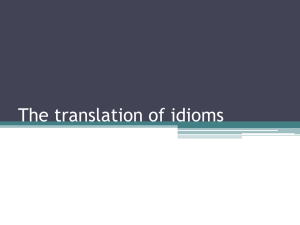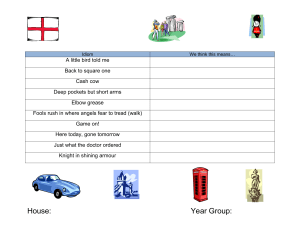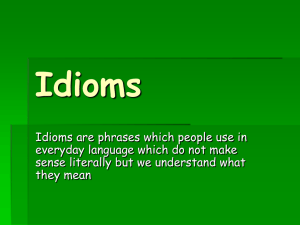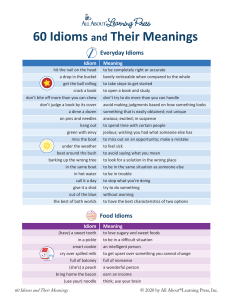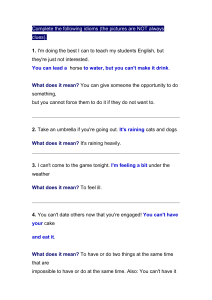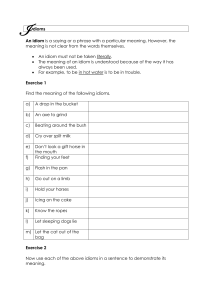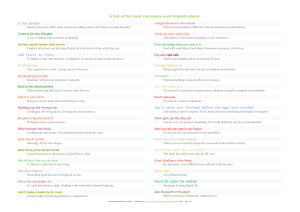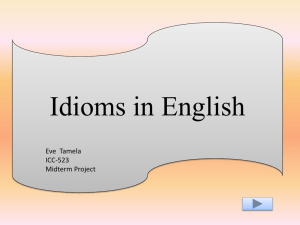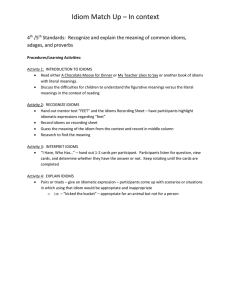The translation of idioms
advertisement
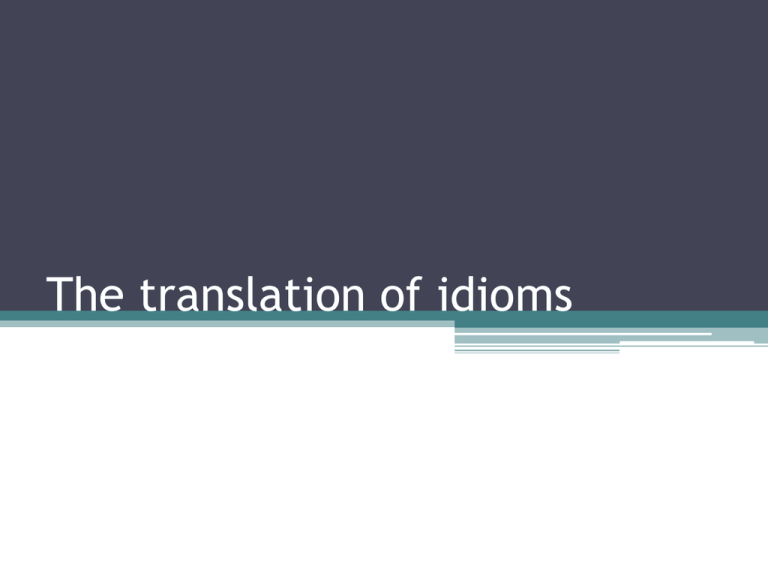
The translation of idioms • An idiom is an expression whose meaning cannot be guessed from the literal definitions and the arrangement of its parts, but refers instead to a figurative meaning that is known only through conventional use • For example: the apple of his eye A green thumb Bared his teeth The main bulk of idioms 1- Non-compositionality: The meaning is not a straightforward composition of the meaning of its parts. For example: It’s raining cats and dogs • 2- Non-substitutability: • We cannot substitute a word in a collection with a related word • For example: An ivory tower • 3- Non-modifiability: • We cannot modify a collection or apply syntactic transformations • For example: He kick the green bucket • Institutionalization: • Which means that idioms are used and known by long-term use and they exist in a language for a long time until they become familiar to native speakers of that language. • For example: How about a drink? Ways to translate idioms 1) Translation by another idiom of a similar form Storm in a tea cup – زوبعة في فنجان 2) Translation by an idiom but different form It’s raining cats and dogs – إنها تمطر كأفواه القرب 3) Translation by paraphrasing Throw caution to the wind – لم يعد يكترث لشيء
